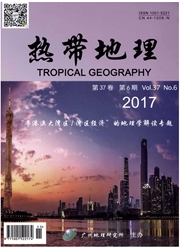

 中文摘要:
中文摘要:
基于中国35个大中型城市1997-2011年的面板数据,对空港与城市经济之间的长期因果关系进行检验。研究结果发现:我国大中型城市的空港客流增长是城市长期经济增长的单向格兰杰原因;直辖市和副省级城市的航空客流和物流均是城市长期经济增长的单向格兰杰原因,空港是城市发展的内生因素,会促进城市经济的长期增长;其他省会城市仅存在城市经济增长至空港客流长期增长的单向格兰杰因果关系,空港只对城市经济具有短期效应。空港的规模大小、是否为枢纽将决定是用新古典经济增长理论还是内生增长理论去理解其对城市经济增长的意义,空港条件的差异将加剧城市经济的分异,航空网络的发展也将对城市体系产生重要影响。而城市经济增长对航空运输的长期增长效应并不普遍,表明我国城市的经济产业结构对空港的依赖性还较弱。综合考虑城市发展条件,合理规划空港并布局相关产业,或许航空城将是未来都市经济增长的新引擎。
 英文摘要:
英文摘要:
Based on the urban panel data of 35 metropolitan cities from 1997 to 2011, the paper provides an empirical analysis on the long-term causal relationship between airport and city economic growth. The result shows that there is a unilateral Granger causal-effect from the growth of air passenger to the urban economic growth in the 35 major cities. There is a unilateral Granger causal-effect from the growth of air passenger and air cargo to the urban economic growth in the municipalities and sub-provincial cities. Hub airport is the endogenous factor to city economic growth, promoting the long-term growth. But there is a unilateral Granger causal-effect from the urban economic growth to the growth of air passenger in other capital cities, the small airports just have short-term effect. The discrepancy of airports will make us use the new-classic growth theory or endogenous growth theory to comprehend the meaning of urban economic growth, and will intensify the city economic differentiation. The development of aviation network will have important influence on urban system. The long-term causality from city economic growth to air transport is not common, possibly indicates that the industrial structure of Chinese metropolitan cities don’t have strong dependence on airfreight transport. Considering the conditions of city development, the airport city will be the new engine of the urban economic growth in the future, if the governments could plan airports and layout related industries reasonably.
 同期刊论文项目
同期刊论文项目
 同项目期刊论文
同项目期刊论文
 期刊信息
期刊信息
